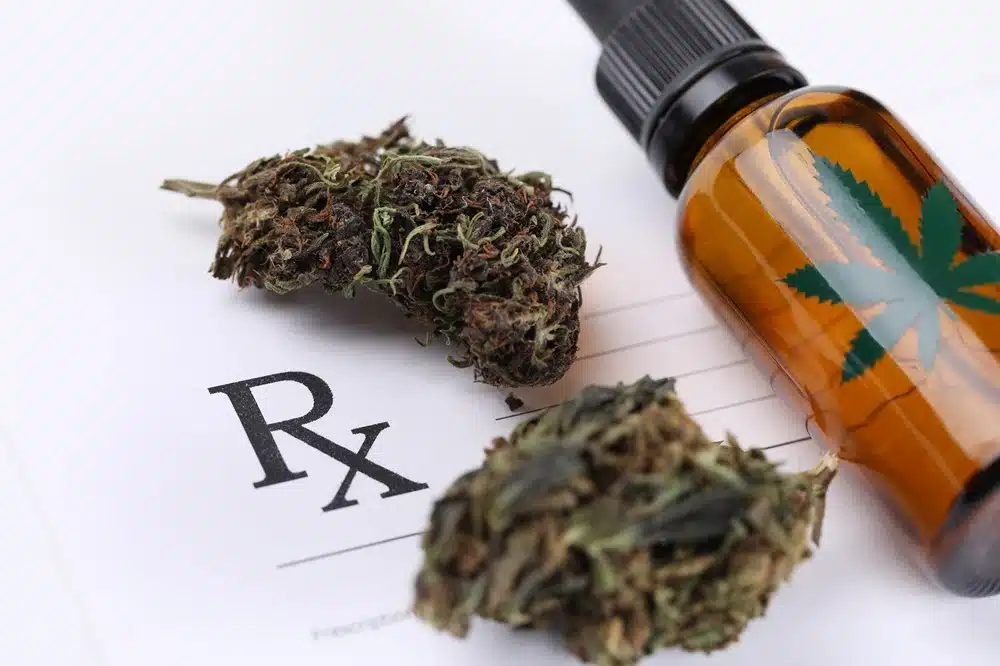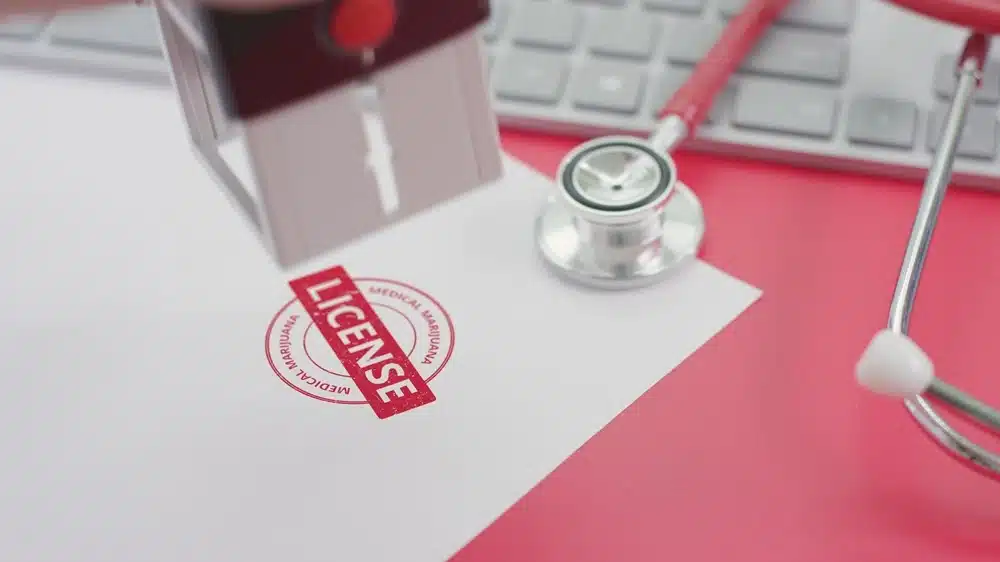The quick answer is yes, you can obtain a medical marijuana card in Illinois even with a felony conviction. This marks a significant shift in Illinois’ policy, making it one of the few states in the US that allows it. However, navigating the process isn’t always straightforward.
To ensure you understand potential challenges, read our comprehensive guide below, which delves into the intricate relationship between cannabis laws and criminal records, exploring the nuanced and often convoluted journey of obtaining a medical cannabis card with a felony.
We’ll navigate you through the labyrinth of legal frameworks and state-specific regulations to help you understand the factors that influence this critical issue.

Understanding Felonies and Their Impact
Felonies are serious crimes that carry significant penalties, including incarceration, fines, and a criminal record that can have a lasting impact on an individual’s life. While the specific definitions and classifications of felonies vary from state to state, they typically encompass crimes considered more severe than misdemeanors.
Drug-related offenses are a prime example of felonies that can significantly impact an individual’s ability to access medical marijuana. In many states, felony drug convictions can disqualify individuals from obtaining a medical marijuana card. This restriction can be particularly challenging for patients with qualifying conditions who rely on cannabis as a treatment.
This scenario not only impacts the individuals directly involved but also raises questions about the broader goals of justice and rehabilitation in the legal system.
Can a Felon Get a Medical Card?
The legal landscape surrounding medical marijuana is highly fragmented, with varying policies and restrictions across different states. In some states, some people can get medical marijuana cards, even if they have felony records, including past drug-related offenses. But in other states, they have stricter rules and don’t allow people with certain felony convictions, especially drug-related ones, to get medical marijuana cards.
In this table, we have provided more detailed info on restrictions in medical marijuana laws from state to state:
| State | Felony Eligibility | Types of Felonies Disqualified |
|---|---|---|
| Illinois | Some types of drug-related felonies disqualified | Felony drug convictions related to the sale, manufacture, or cultivation of cannabis; violent or weapon-involved drug felonies |
| Colorado | No felony-based restrictions | No specific restrictions based on type of felony |
| California | Felony drug convictions disqualified for 10 years | Felony drug convictions |
| Nevada | Allowable if felony drug conviction was for a minor offense | Serious felony drug convictions, such as trafficking or manufacturing |
| Maine | No felony-based restrictions | No specific restrictions based on type of felony |
| Oregon | Felony drug convictions disqualified for 7 years | Felony drug convictions |
| Washington | Felony drug convictions disqualified for 10 years | Felony drug convictions |
| Arizona | Felony drug convictions disqualified for 5 years | Felony drug convictions involving the sale, manufacture, or cultivation of cannabis; violent or weapon-involved drug felonies |
| Pennsylvania | Felony drug convictions disqualified for 5 years | Felony drug convictions involving the sale, manufacture, or cultivation of cannabis |
| Massachusetts | Felony drug convictions disqualified for 5 years | Felony drug convictions involving the sale, manufacture, or cultivation of cannabis |
| New York | Felony drug convictions disqualified for 7 years | Felony drug convictions involving the sale, manufacture, or cultivation of cannabis; violent or weapon-involved drug felonies |
The Medical Cannabis Card Application Process
As some states permit individuals with felony records to obtain a medical marijuana license, let’s explore the typical steps involved in this process:
- Check Eligibility: Before applying, individuals should thoroughly review the state’s medical marijuana law to confirm they meet the eligibility criteria, including having a qualifying medical condition and being a resident of the state.
- Find a Qualified Physician: Individuals must obtain a written certification from a licensed physician who has completed the necessary training and certification to recommend medical marijuana.
- Complete the Application: The state will have a specific application form that must be completed and submitted, along with the physician’s certification and supporting documentation.
- Pay Application Fees: Most states require payment of application fees to cover the administrative costs associated with processing and issuing medical cannabis cards.
- Background Check: Some states may conduct background checks to verify the applicant’s eligibility and ensure they meet the requirements, particularly for individuals with felony records.
- Receive Approval or Denial: Once the application is reviewed and any necessary background checks are completed, the state will notify the applicant of their approval or denial.
Special Considerations for Applicants with Felonies
Individuals with felony records may face additional considerations and requirements when applying for medical marijuana cards. Some states may require applicants to disclose their criminal history and provide copies of relevant court documents or expungement orders.
In some cases, individuals with felony drug convictions may be disqualified from obtaining medical cannabis cards. However, there may be exceptions based on the severity of the offense, the amount of time that has passed since the conviction, or whether the individual has demonstrated rehabilitation.
Individuals with felony records must consult with an attorney or the state’s medical marijuana licensing board to understand the specific eligibility requirements and any potential restrictions they may face.
Legal Exceptions and Loopholes
Despite the challenges posed by restrictive policies, some potential legal exceptions or loopholes might allow felons to obtain medical cannabis cards. These exceptions may vary depending on the state and the specific circumstances of the individual.
One such exception is the possibility of obtaining a pardon or expungement of a felony conviction. A pardon essentially restores a person’s civil rights, including eligibility for medical marijuana, while expungement removes the conviction from the person’s public record, making it less likely to influence their eligibility decisions.
Another potential loophole involves the severity of the felony conviction. Some states may only disqualify individuals with felony convictions for specific types of crimes, such as violent offenses or those involving the sale or distribution of cannabis. In these cases, individuals with felony convictions for non-drug-related offenses may be eligible for medical cannabis cards.
Ethical and Social Considerations on Medical Marijuana Restrictions
The debate over whether denying medical marijuana to individuals with felonies is ethical is complex and multifaceted. Proponents of such restrictions argue that cannabis should not be accessible to individuals with a history of drug-related offenses, as it could be seen as rewarding or condoning their past behavior.
Opponents of such restrictions contend that denying medical marijuana to individuals with felonies is counterproductive and may hinder their rehabilitation efforts. They argue that cannabis can be an effective treatment for a wide range of medical conditions, and denying it to individuals with felony records could prevent them from managing their symptoms and achieving optimal health.
Furthermore, denying medical marijuana to felons could exacerbate the stigma associated with their criminal records, making it more difficult for them to reintegrate into society and fully participate in their communities. Access to medical marijuana could empower individuals with felony records to manage their health and improve their quality of life, potentially reducing recidivism rates and promoting overall well-being.
Conclusion
The journey to a medical marijuana card with a felony can be challenging, but not impossible. While state medical marijuana laws vary, in some states, past convictions aren’t an automatic disqualification.
Windy City Cannabis can offer expert guidance and resources to help you navigate the application process, explore legal exceptions like pardons, and connect with qualified physicians. Don’t let past hurdles limit your access to potential relief.
Visit our shop today, and let Windy City Cannabis help you get the care you deserve.
Sign Up for Our Rewards Program
Find your perfect cannabis products at Windy City Cannabis. Whether you’re a medical or recreational user, we’ve got you covered.




